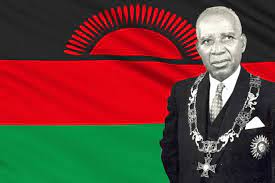Poor Leadership Is Nigeria’s Problem, Not Diasporans By Fadumo Abiodun Paul
This is an attempt to enlighten those criticizing people like me who live abroad and, as such, are not expected to talk about Nigeria – our country. In other words, I am directly responding to Buharists criticizing diasporas.
I wish this writer, like many of his kind are genuine with no strain attached, but I can tell they are not. Instead, many of them are defending their pot of soup (the national treasury) – which belongs to all Nigerians but (unfortunately) under the control of their current paymasters and benefactors.
I think that many of us (diasporans) are far more passionate about the need to see a better Nigeria than his kind who are home-based. It may be because we are comparing what is with what could be. According to him, doing well is always to be measured by how much money or property one owns.
It is as if we were brought up to believe that living well is all about how much materials that you have. Unfortunately, until you have seen another person’s farm, you may assume that your father’s farm is the best there is.
Nigerians abroad referred to in this piece (titled: “I had to block most of the abroad people on my WhatsApp,” Article by Gbenga S. Wemimo June 2, 2021) mostly want nothing but to see our nation prosper.
Some of the current ruling elites once had reasons to live overseas and mounted pressure on the then military regimes. However, ironically, today, they think those calling them out are angry people with harmful agendas for the country.
Once you start living abroad, a few things change: it could include not having to pray before driving your car (because the roads are not as bad) or worry about paying so much for a 19th-century education system.
Many of such people suddenly figured (after leaving Naija) that they can actually develop a career based on their passion and interest, so they work and earn a decent living – without having to steal. After all, there is honour in honest labour.
There is nothing like living in an environment where you are valued based on what you can offer, rather than whom you know, a place where you can plan and stay within your means. Furthermore, where human lives matter to some extent.
There is nothing as peaceful as knowing that you live in an environment where you can be purposeful, educated, and contribute – where the ability to plan, imagination, and ingenuity are all that you need to be successful in a given sphere. Hence, that some home-based Nigerians use iPhone 12 while some of us abroad use android is irrelevant.
We want Nigeria to succeed like any emerging 21st century nation. However, we are also conscious of the fact that 100 million people with President Buhari’s kind of mentality of self-aggrandizement and unimaginative cannot build a 21st-century country.
Note: The Nigerian Grazing Reserve Act of 1964 was passed as an initial attempt to improve Fulani access to grazing land for their cattle, simultaneously encouraging sedentarisation in order to address existing conflicts between farming and grazing communities. Pastoralism volume 4, Article number: 12 (2014) Okello, A.L., Majekodunmi, A.O., Malala, A. et al.
We know that it is useless to expect Buhari to build the Nigeria of our dream. Why should anyone expect from a president insisting on reopening the 1964 grazing routes in 2021 to maintain the traditional trade culture and ethnic bloodshed by some of his tribesmen, even if it means sending farmers away from their farmlands?
We know that building a few roads, bridges, and skeletal railway projects is the least of what is required to build a thriving society – today.
Nigeria remains our home (regardless of where we currently live), and ‘no Nigerian is more Nigerian than the other.’ (Aisha Yesufu)
The news of insecurity, extreme poverty (suffered by some), and clamp down on freedom of expression from Nigeria should be enough reason to be concerned. However, I guess it will not matter to some people unless they have been directly impacted. We are not necessarily known for being our brother’s keepers.
We complain, criticize and critique because we believe that Nigeria could be better with sincerity, ingenuity, and contributions by everyone. Therefore, we particularly demand results from civil servants and political officeholders – whether we live in the country or not is secondary.
Diaspora Nigerians are among its most reliable assets – if well harnessed. Studies have shown that the consequences related to ‘brain drain’ can be mitigated through direct remittances, knowledge transfer, investments (direct or indirect), and that is why technology and communication channels should be enhanced – not shut down.
Nigerians abroad are among the most ‘genuinely’ passionate people about Nigeria’s development – regardless of whether some people approve of how they choose to demonstrate it.
Since the late 1990s, the positive effects of emigration have given rise to new terms such as “brain circulation” and “brain bank”. “Brain circulation” refers to those emigrants who transfer new skills and knowledge invaluable for development to their home country. Even when skilled emigrants do not return to their countries of origin, they often provide the skilled professionals that remained behind with access to the valuable knowledge learned abroad, referred to as “brain bank.” (Kapur, 2001).
Finally, we believe that criticizing poor governance, the archaic mentality of the rulers, and making demands on politicians are a matter of civic duty; therefore, all patriotic Nigerians – home and abroad must do their parts in ensuring that we secure the Nigeria of our dream.
We must not let them take away our rights and or space to criticize a bad government and have our opinions heard. Especially since living abroad also guarantees an escape from police arrest and torture of dissenting citizens.
©FadumoPaul.





